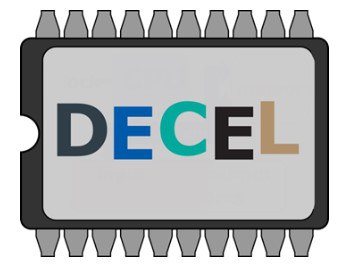DECEL - Digital Electronics Collaborative Enhanced Learning
 Topics:
Topics:
Addressing digital transformation through development of digital readiness, resilience, and capacity | Developing STEM/STEAM in higher education, in particular women participation in STEM | Stimulating innovative learning and teaching practices
Summary:
DECEL project bursts as an initiative of a group of teachers from the Engineering disciplines, at a time when the European Commission has presented two major initiatives aimed at unlocking Europe´s potential on education and innovation: the Communication on the European Education Area, and the introduction of the updated Digital Education Action Plan, whose purpose is to support the use of technology in education and the development of digital competences. Paradoxically enough, although engineering courses probably use the most sophisticated software tools to program, design or simulate, teaching processes in this field are still based upon traditional learning methodologies, with limited or no bilateral interaction promoted in most of them, and where the role of the teacher remains that of a mere lecturer in front of a passive cohort of students. In other words, while this increasing technological sophistication is being used in our classrooms to calculate things the teaching activity has proved to be hermetic to the use of these young and fresh tools to dynamize the learning process. Moreover, and equally disturbing, despite the global expanding tendency of this sort of studies, and the common use of the English language as a learning vehicle, the Erasmus+ Impact Study (2019) clearly evinces a deficit in the participation of Engineering students in international mobility programs. This might be the result, among other circumstances, of the high level of experimentally into the Engineering fields all the technical courses, which are the most important part in the syllabus, and the handicap that may pose access to expensive lab equipment at any time and from anyplace. Against this situation, our project seeks a crucial movement from a reactive to a pro-active strategic approach in the design of Digital Electronic Systems courses; a movement that shall depart from the added value of using technology in our curricula to mainstreaming a digitally enhanced learning and teaching; a movement, to say the least, that shall stop having a traditional focus on internationalization based on mobility as part of our home degrees, to understand that we should explore internationalization of the curriculum and the teaching and learning process as the beacon for innovation in this studies. From the university level, new Erasmus+ Calls such as Alliance of European Universities are promoting the construction of joined schemes between several universities. These ones are usually constructed under a high-level perspective using a bottom-up approach. However, the teachers involved in regular activities as teaching have not had the chance to promote some type of European collaboration. Joining the need of promoting internationalization in our students, apply new pedagogical tools in curricular courses, extending European teaching cooperation and take advantage of new software/hardware resources, DECEL project is proposed.

Project details
Scientific responsability: Cristian Zambelli
Funding source: ERASMUS+
Key Action: KA220-HED - Cooperation partnerships in higher education
Action Type: Cooperation among organizations and institutions
Project Reference: 2021-1-ES01-KA220-HED-000032189
Start date: 25-02-2022 - end date: 25-02-2025
Total cost: 277.505,00 €
Contribution to UniFe: 80.189,00 €
Participants
- Universidad de Alcalá (Coordinator), Spain
- Universidade do Porto, Portugal
- Università degli Studi di Ferrara, Italy
- Université de Tours, France
